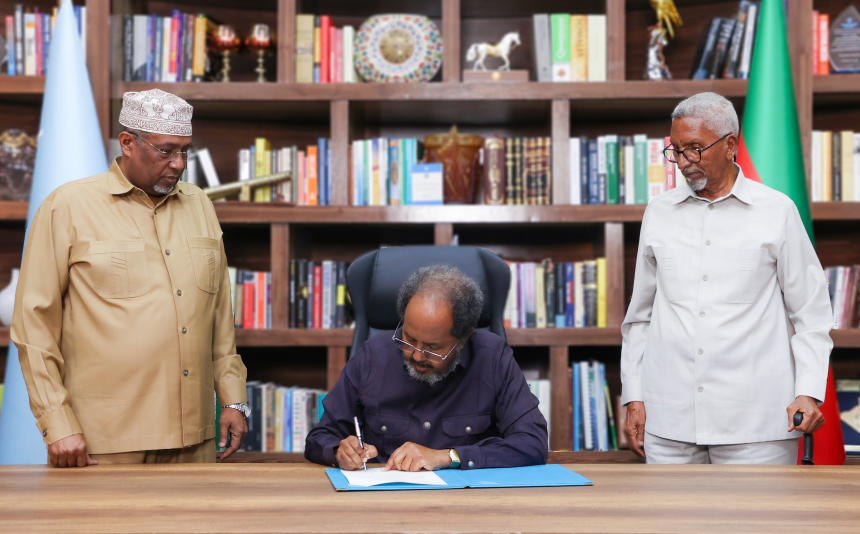On Saturday, January 6, President Hassan Sheikh Mohamud of Somalia signed a law that nullifies the memorandum of understanding previously agreed upon between the Governments of Ethiopia and Somaliland.
“This evening, I signed the law nullifying the illegal Memorandum of Understanding between the government of Ethiopia and Somaliland,” read the statement from the president, which was posted on X (formerly Twitter) on Saturday.
“With the support of our lawmakers and our people, this law is an illustration of our commitment to safeguard our unity, sovereignty and territorial integrity as per international law,” added Hassan Sheikh, who has been consistent about Somalia nationalism.

This significant action comes in response to a recent deal announced on January 1 between Ethiopia and the breakaway Somali region.
As part of this arrangement, Somaliland intends to lease a 20-km stretch of its coastline to Ethiopia for the establishment of a naval base, as stated by Ethiopian Prime Minister Abiy Ahmed during the signing ceremony.

President Muse Bihi Abdi of Somaliland revealed that the agreement also included a provision stating that Ethiopia would soon recognize Somaliland as an independent country.
However, the crux of the dispute lies in Somaliland’s longstanding objection to the legally binding nature of the union that was intended to create a unified country after Somalia and Somaliland gained independence from Italy and Britain, respectively.
Somalia has condemned this move as an “act of aggression” and responded by recalling its ambassador from Ethiopia.
Several countries including the United States and the United Kingdom have rejected the deal, while calling for dialogue beteeen Mogadishu and Addis Ababa. The European Union, Arab League of nations and the African Union have also disowned the deal.
The Chairperson of the African Union (AU) has called for both Ethiopia and Somalia to promptly engage in a negotiation process to address and resolve their differences.
The historical context notes that Ethiopia lost its direct access to the sea when Eritrea seceded in 1993. Since then, Ethiopia has relied on the port in neighboring Djibouti for the majority of its import and export activities.








